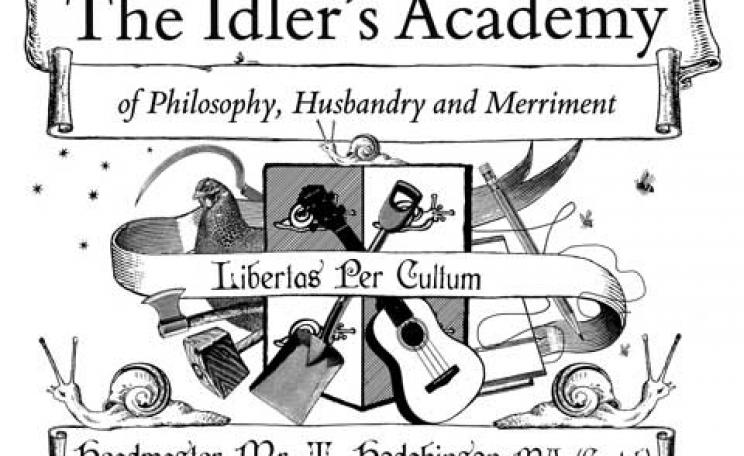I've been reading the old Roman husbandry writers like Columella and Cato. It’s fascinating to note that the Romans, in the later period, had very similar problems to us today, in that they fretted about the depletion of the soil and climate change. Columella, who was a native of Cadiz in Southern Spain, then a Roman colony, wrote his books, very roughly speaking, in the years 50-70 AD, nearly 2,000 years ago. His De Re Rustica (On Agriculture), opens with the following comments:
Again and again I hear leading men of our state condemning now the unfruitfulness of the soil, now the inclemency of the climate for some seasons past, as harmful to crops; and some I hear reconciling the aforesaid complaints, as if on well-founded reasoning, on the ground that, in their opinion, the soil was worn out and exhausted by overproduction of earlier days and can no longer furnish sustenance.
Columella argues that mother earth does not in actual fact become exhausted. It is really a problem of bad stewardship:
For the matter of husbandry, which all the best of our ancestors had treated with the best of care, we have delivered over to all the worst of our slaves, as if to a hangman for punishment.
Then as now, farms had become enormous factories, with up to 80,000 slaves producing food for the Empire. Elegant Romans had removed themselves from the soil and actually looked down on farming and farmers. This was not the case, says Columella, in the old days, when keeping a smallholding was a noble pursuit:
We think it beneath us to till our lands with our own hands... but it was a matter of pride with our forefathers to give their attention to farming, from which pursuit came Quinctius Cincinnatus [in 458 BC], summoned from the plough to the dictatorship to be the deliverer of a beleaguered consul and his army, and then, again laying down the power which he relinquished after victory more hastily than he had assumed it for command, to return to the same bullocks and his small ancestral inheritance of four iugera [one iugera was about three fifths of an acre].
Columella also mentions a Roman obesity problem, linked to lazy lifestyles, and criticises, rather like an outraged tabloid newspaper, an over-indulgence in 'drunkenness' and 'gaming':
The consequence is that ill health attends so slothful a manner of living; for the bodies of our young men are so flabby and enervated that death seems likely to make no change to them.
So Columella, rather like Cobbett in the 19th century, John Seymour in the 20th, and Hugh Fearnley-Whittingstall in our own, sees that the answer to our agricultural problems is to return dignity to the art of husbandry and encourage more people to till the land. We should be doing something useful he says, and we make the mistake of 'plying our hands [ie clapping] in the circuses and theatres rather than in the grainfields and vineyards'.
To this end he wrote twelve books of farming and gardening advice, including many suggestions on how to improve the soil and keep it fertile. He also gives directions on how to look after bees, poultry, pigs, cattle and sheep. Columella’s is a hopeful message because it returns power to the people, unlike the limp and ultimately profitless strategy of trying to persuade a capitalist government to change people’s ways by force and persuasion. What is astonishing really is how close Columella’s advice is to what you might find in a contemporary book about organic gardening or Permaculture. Climate change is clearly nothing new:
I have found many authorities now worthy of remembrance were convinced that with the long wasting of the ages, weather and climate undergo a change... that regions which formerly, because of the unremitting severity of winter, could not safeguard any shoot of the vine or the olive planted in them, now that the earlier coldness has abated and the weather is becoming more clement, produce oil harvests and the vintages of Bacchus in the greatest abudnance.
The Roman Empire was to last another four hundred years or so after Columella was writing. And we are still here today. We perhaps then do not need to worry overmuch, and it would seem that the answer to soil exhaustion and climate change is the same as it has ever been: simply to get back to the land.






